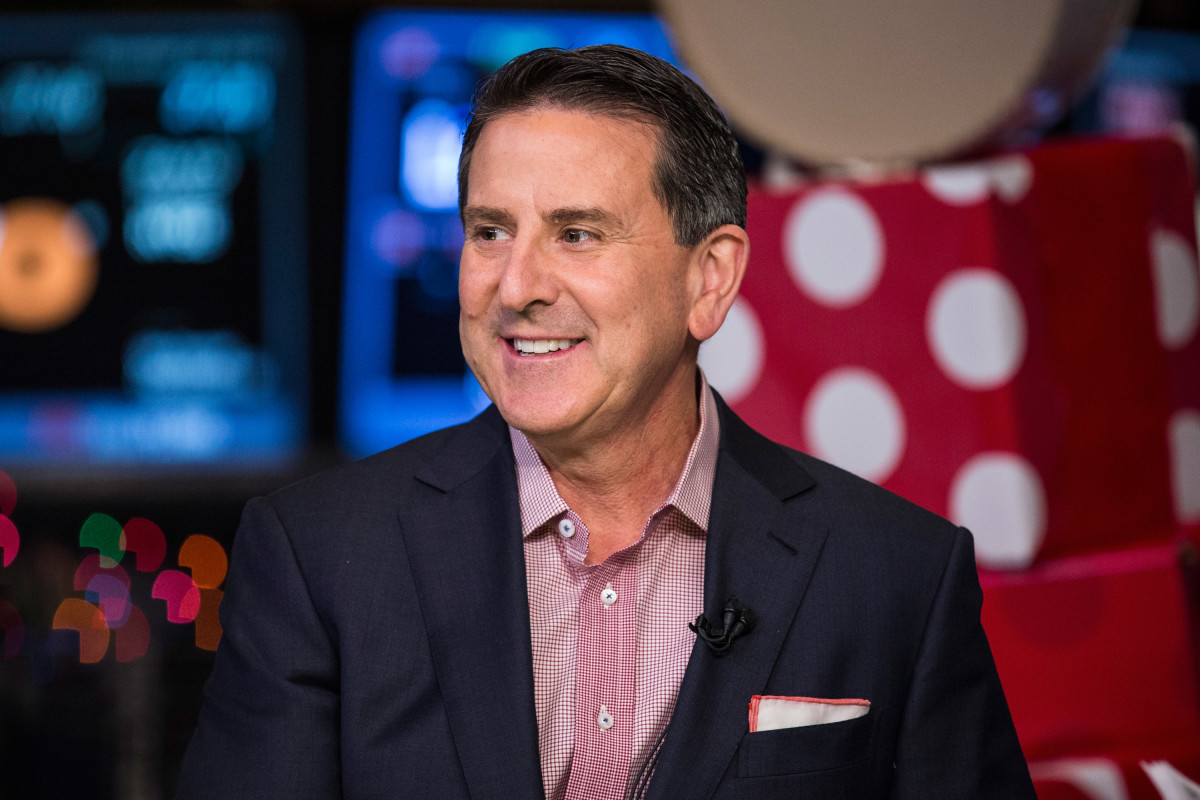
Target (TGT) CEO Brian Cornell has subtly addressed one of the biggest complaints from consumers nationwide.
Amid record inflation, consumer prices have increased by almost 21% since February 2020, according to a recent Bankrate analysis.
Related: Target CEO has surprising words on retail theft
While many companies have argued that skyrocketing prices are due to inflation, Vice President Kamala Harris is skeptical as she recently proposed a federal ban on “corporate price-gouging in the food and grocery industries” during a campaign event last week.
“There’s a big difference between fair pricing in competitive markets, and excessive prices unrelated to the costs of doing business,” said the Harris campaign in a statement to Fox.
During an interview on CNBC’s Squawk Box on Aug. 21, Cornell was asked if Target has boosted its profits from price gouging. In response, the CEO said that the company is in a “penny business.”

“We reduced prices on 5,000 items,” said Cornell. “But value is in our DNA. When you go back to the brand promise, 'expect more, pay less,' It’s what we do each and every day.”
He claimed that the company is in a “very competitive space” and that consumers can find lower prices on items by comparing prices online or visiting other retailers.
“It’s a penny business, it’s a very competitive space, and we provide the value consumers are looking for,” said Cornell.
Target lowers prices due to shrinking sales
Cornell's comments come after Target lowered prices on 5,000 frequently shopped items earlier this summer. The decision followed the release of its first-quarter earnings report for 2024, which revealed that the retailer faced a 3.7% decline in comparable store sales compared to the same quarter in 2023 and a 1.9% decline in in-store traffic.
Its operating income, which is a company’s profit after expenses, also shrunk by 2.4%.
Related: Another major retailer is cutting its prices on thousands of products
During an earnings call on May 22, which discussed the report, Target Executive Vice President Michael Fiddelke said that consumers are spending “cautiously,” specifically in “discretionary categories.”
It appears that those price cuts have paid off for Target. Its second-quarter earnings report, released on Aug. 21, revealed that its comparable sales increased by 2% year-over-year, and its store traffic grew by 3%. Its operating income also rose by roughly 36%.
On an earnings call on Aug. 21, Cornell revealed that Target saw a boost in sales, specifically in apparel, beauty, and food and beverage, due to multiple investments.
More Retail:
- Macy’s store closures may unlock valuable real estate
- FTC finally makes a sneaky online shopping tactic illegal
- Kroger has alarming plans for digital price tags, lawmakers say
“We feel really good about the way the consumers reacted to the price investments we've made on those 5,000 frequently purchased items, but it really goes beyond those investments,” said Cornell. “If you're a Target Circle member, you're getting personalized offers every time you shop. If you're using a Target Circle card, you have the opportunity for that 5% discount.”
Many large retailers have also recently opted to cut prices on thousands of popular items after they reported waning sales due to price-conscious consumers.
In May, Walmart revealed that it slashed prices on 7,000 items to help boost purchases at stores. That same month, Walgreens and AmazonFresh also announced separately that they were lowering prices on thousands of items to attract back frugal shoppers.
Related: Veteran fund manager picks favorite stocks for 2024







